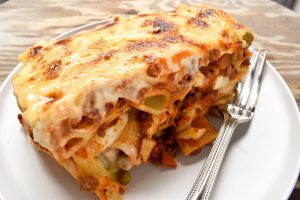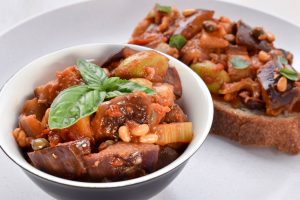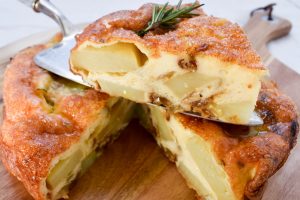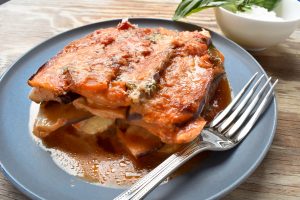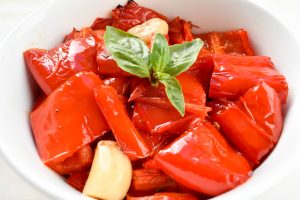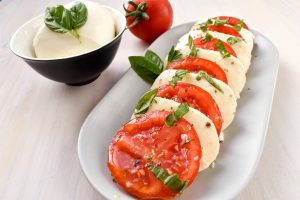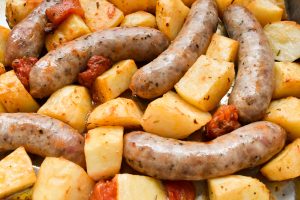Ferragosto in Italy 2018

In Italy “Ferragosto” is celebrated every year on the 15 August. During the week of Ferragosto, the major cities of Italy are fairly empty as most Italians travel to beach, lake and mountain destinations to celebrate.
So what are the Italians celebrating? Ferragosto is the highlight of the Italian summer. It is a public holiday and time of the year that most Italians take their summer holidays. Ferragosto also coincides with the Catholic feast of the Assumption of the Virgin Mary into heaven. In many towns and cities of Italy, large crowds gather to join the parades of people carrying the statue of Jesus’ mother Mary.
So what is the history of Ferragosto? The tradition of Ferragosto comes from the original Latin name ‘Feriae Augusti‘ which means the Festival of Augustus. Feriae Augusti was introduced by Roman Emperor Augustus in 18 BC. In Roman times, horse races and large feasts were organised. The purpose was to provide a period of rest, known as ‘Augustali’, after a long period of agricultural harvest and hard labour. Even the donkeys and other animals were relieved from their laborious duties and decorated with flowers on the 15 August.
In recent times, Ferragosto is celebrated with ‘scampagnate’ (picnics) and lunch feasts shared with family and friends. You need to be prepared for added traffic on the roads and crowds at the beach and in restaurants leading up to and on the day of Ferragosto. Many small businesses also close on the week of Ferragosto as it is the next most important holiday after Christmas, Easter and New Year’s Eve.
So what do you eat at Ferragosto? On the 15 August 2018, our family have gathered to share the following dishes:
1. Pasta al forno (pasta bake)
3. Frittata ‘di patate’ (of potatoes)
4. Melanzane (eggplant/aubergine) alla Parmigiana
5. Peperoni al forno (roasted capsicum/peppers)
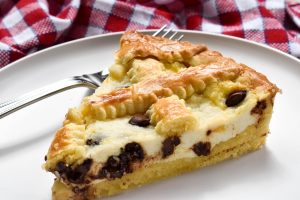 7. Salsiccia e patate al forno (oven baked sausages and potatoes)
7. Salsiccia e patate al forno (oven baked sausages and potatoes)
8. Crostata of ricotta and chocolate
Buon Ferragosto a tutti (Happy Ferragosto to all)!
Ferragosto in Italy 2018 blog authored by Vanessa Bottaro.
Vanessa Bottaro
Vanessa is Creative Director of the Italian Spoon website and Author of The Italian entertaining cookbook, a collection of home-style Italian recipes and tips for entertaining in true Italian-style. In addition to cooking and taking photographs, Vanessa writes the recipes and blogs to bring the love of Italian cooking to life! The collection of recipes and blogs on the website have been inspired by travels to Italy and desire to share what she has learnt from the great ‘Mamma’s and ‘Nonna’s in her life!
Vanessa is an entrepreneur and wife to husband Simone and the mother of two beautiful kids Dante and Mia. Even so she was born and lives in Melbourne Australia, Vanessa has a deep connection to Italy. Perhaps it is the food, or maybe it is because it is the place where Vanessa met the love of her life, Simone to whom she has been happily married for so many years.
Latest posts by Vanessa Bottaro (see all)
- Italian Christmas menu 2022 - December 16, 2022
- 10 Show-Stopping Roast Ideas - November 18, 2022
- Healthy Italian food recipes - November 4, 2022
Recent Posts
-
16 December, 2022Italian Christmas menu 2022
-
18 November, 202210 Show-Stopping Roast Ideas
-
4 November, 2022Healthy Italian food recipes
-
21 October, 2022Tips to cooking the perfect pasta (just like nonna)
-
7 October, 20226 rules to make the perfect homemade Italian soup

